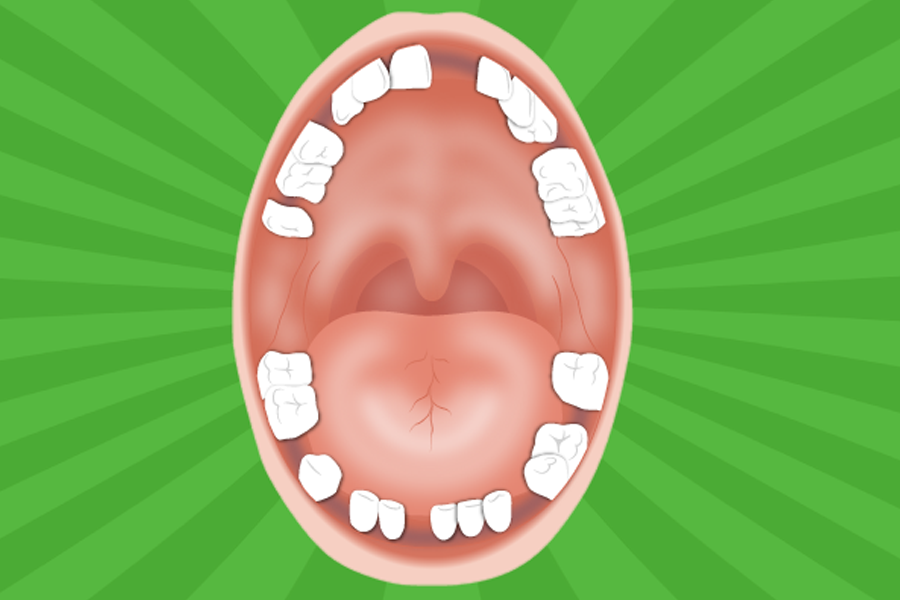The Impact of Tooth Loss in Adulthood and How to Avoid It
By Shelby Tatomir on February 21, 2020 in Dental Health

Tooth loss doesn’t have to occur as we age. When adults lose a tooth, it’s usually from knocking it out or having poor oral health. There are a variety of oral health conditions that can lead to tooth loss. Dental cavities and periodontal disease are the most common. When we’re young, if we have a poor dental health routine, we’re going to carry those habits with us into adulthood. But, if we’re aware of the impact that our oral health (and tooth loss) can have on our lives, we can take proper care. When we practice good preventive dental care, the likelihood for cavities and oral disease drop dramatically.
In the modern era of preventive care, dentists now choose more restorative methods over removing teeth. This means that complete tooth loss is becoming less common. The American Dental Association found that in the past 50 years, complete tooth loss decreased by over 75 percent in adults 65-74! Learn how tooth loss occurs and what steps you can take to preserve your teeth and oral health.
Preventive Dental Care and Natural Teeth in Old Age
The two factors that influence tooth loss the most are age group and household income. Fifty years ago, total tooth loss was three times more common than it is today. The advent of preventive dental care has made it possible for us to keep our natural teeth into old age. The current rate of tooth loss is the lowest it has ever been in the United States. But why?
Advances in technology have allowed us to see the positive impact that dental care and a proper diet have on our oral health. Studies have shown that frequency of tooth brushing, regular dental check-ups, access to fluoridated water,
and following the proper daily care routine are related to the level of plaque each individual had. When we don’t properly care for our teeth, we set ourselves up for a lifetime of oral health struggles.
Studies found that some of the most common oral health concerns facing older adults are:
Cavities – despite strides in preventive dental care, cavities are still a problem today for older adults for the following reasons:
- Adults retaining their natural teeth longer,
- Age-related changes in the mouth such as a decrease in salivation,
- Poor diet,
- Gingivitis (inflamed gum tissue),
- Prescribed medication causing dry mouth.
These contribute to the development of cavities. Many individuals experience a combination of more than one factor.
Periodontal disease – this is more commonly known as gum disease. If left untreated, gum disease can take on a more serious form that causes infected pockets along the teeth. Avoid gingivitis by:
- maintaining a healthy diet,
- practicing a good daily oral health care routine,
- quit smoking,
- see your dentist regularly.
Preventive dental care becomes more important for older adults because new factors start to impact their oral health. New medications or a change in salivary gland function can lead to dry mouth. Make a dentist appointment today to keep any looming dental problems at bay. This will increase both smile health and the individual’s confidence in their smile.
What Are the Positive Impacts of Keeping Our Natural Teeth in Old Age?
Individuals with their natural teeth have been proven to have a better quality of life. Dr. Bruce Dye is a researcher with the National Institute of Dental and Craniofacial Research. He recently wrote that “tooth loss can reduce quality of life and lessen the likelihood of eating a healthy and diverse diet.” When an individual has more teeth, they have “an increased need to protect [their] oral health,” which in turn improves their overall quality of life.
Research has proven that we progressively alter our food choices as the number of teeth we have decreases. Our ability to successfully chew breaks down our food and helps release flavor. This directly impacts our satisfaction when eating. Individuals with missing teeth report eating less of foods that are harder to chew. Unfortunately, they often give up fruits, veggies, and proteins. If foods like this are prepared for someone without teeth by removing skin or mashing, they often lose much of the nutrients they supply. “Patients who are edentulous [or without teeth] tend to favor softer, more processed foods, which are typically higher in cholesterol and fat content.” Preserving our natural teeth into old age helps keep our bodies healthy and positively impacts our self-confidence, too.
Take the time to discuss with your dentist how you can improve your smile health. Still looking for a dentist? Click here to find one in your area.
Need a dental plan? Click here for details.